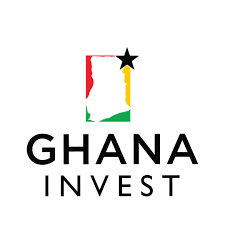By Krisem
Investment Opportunities in Ghana for Diasporans with £10,000–£20,000: A Practical and Strategic Analysis
1. Introduction
For Ghanaians living in the United Kingdom or across the diaspora, the desire to contribute meaningfully to the development of their homeland often intersects with a personal ambition to establish a financial footprint back home. With a modest but significant investment capital of £10,000 to £20,000 (equivalent to approximately GHS 180,000–GHS 360,000 as of mid-2025), the question arises: where can this money be invested wisely within the Ghanaian context?
To answer this meaningfully, one must consider both the current business environment in Ghana and the macroeconomic factors, particularly the performance of the Ghanaian Cedi (GHS). These factors significantly influence the risk and potential return of any investment.
2. Ghana’s Current Business Environment (2025 Overview)
Ghana continues to position itself as a hub for West African business and innovation, underpinned by:
- Political Stability: Ghana remains one of Africa’s most stable democracies. This provides a relatively secure environment for investment.
- Youthful Population: With over 57% of the population under 25, there is a strong consumer base and workforce to tap into.
- Urban Expansion and Infrastructure Development: Government-backed infrastructural projects are driving development across the country.
- Digitisation and Financial Inclusion: Rapid mobile money penetration and fintech adoption are reshaping how business is done.
However, challenges persist:
- High-interest rates, especially on cedi-denominated loans
- Unreliable power supply in certain regions
- Policy inconsistency in some sectors
- Import dependence, which can affect cost structures
3. The Ghanaian Cedi: Performance and Implications for Investment
The Ghanaian Cedi (GHS) has historically been volatile due to a combination of factors: fiscal deficits, external debt obligations, and trade imbalances. In 2023–2024, the cedi depreciated significantly, driven by inflationary pressures and limited foreign exchange reserves. Although the Bank of Ghana has attempted to stabilise the currency through monetary tightening and policy interventions, the cedi continues to be vulnerable to external shocks.
Implications for Investment:
- For diaspora investors bringing in foreign currency, the depreciation of the cedi can initially be favourable—it increases your purchasing power locally.
- However, returns on local investments are also exposed to currency risk. If you plan to repatriate profits in GBP or USD, a weakening cedi can erode gains.
- It is therefore advisable to invest in ventures with intrinsic value, such as real assets or exports, rather than speculative short-term opportunities.
4. Viable Investment Avenues for £10,000–£20,000
A. Agribusiness and Agro-processing
- Type: Small-scale poultry, fish farming, snail farming, mushroom production, or maize/vegetable cultivation.
- Budget Fit: Very feasible within this range, especially with good land access.
- Why: Agriculture remains the backbone of Ghana’s economy, yet it is undercapitalised. Growing middle-class consumption also supports local food markets.
- Risk: Climate variability, lack of irrigation, and market access challenges.
- Mitigation: Invest in irrigation kits, partner with cooperatives, use digital platforms like Farmerline or AgroCenta for market linkage.
B. Real Estate (Low-Cost Housing or Short-Term Rentals)
- Type: Start small—land banking, building a single-unit rental in a peri-urban area like Kasoa, Dodowa, or Kumasi outskirts.
- Budget Fit: £20,000 can start a one- or two-bedroom structure or buy serviced land.
- Why: Ghana has a major housing deficit, especially for low- and middle-income earners.
- Risk: Land litigation, poor documentation.
- Mitigation: Engage a trusted local lawyer; use the Lands Commission to verify ownership before purchase.
C. Retail and Distribution
- Type: Importation and resale of UK goods (cosmetics, baby products, auto parts), or establishment of a small FMCG retail outlet.
- Budget Fit: £10,000–£15,000 is sufficient to start inventory.
- Why: Urban consumption trends favour imported or high-quality branded products.
- Risk: Import taxes, forex volatility.
- Mitigation: Source products locally when possible or focus on niche items with high markup.
D. Digital Services and Tech-Based Startups
- Type: Mobile money vending, tech hubs, virtual services (digital marketing, online tutoring, software development).
- Budget Fit: Lean startup models work well within this budget.
- Why: Increasing internet penetration and demand for digital solutions.
- Risk: Market saturation in urban areas, unreliable internet in rural zones.
- Mitigation: Niche targeting, value-added services, partnerships with telcos or fintechs.
E. Education and Vocational Training Centres
- Type: Small-scale skills training centres (tailoring, catering, coding, hairdressing).
- Budget Fit: £15,000–£20,000 is sufficient to equip and run a modest centre.
- Why: High youth unemployment presents a demand for practical, employable skills.
- Risk: Dropout rates, sustaining demand.
- Mitigation: Certify with local authorities, provide internships or job placement support.
5. Strategic Advice for Diaspora Investors
- Start small, but plan big: Pilot your idea on a manageable scale before scaling.
- Do due diligence: Vet every partner, vendor, and property thoroughly.
- Involve locals, but maintain oversight: Appoint someone you trust locally, but monitor from afar through regular visits or digital reporting.
- Diversify your portfolio: Don’t put all your funds into a single venture unless you’re very confident.
- Think long-term: Ghana’s returns are often slow-burning, but real wealth is built over time.
6. Conclusion
Investing £10,000 to £20,000 in Ghana is not only possible but potentially transformative—for both the investor and the community. Yet, success hinges on a sober understanding of the economic terrain, the volatility of the local currency, and the need for strategic patience.
In a business climate that rewards resilience and innovation, diaspora investors must think beyond remittances. They must build, partner, and transform. The motherland is fertile ground—but only for those who till it wisely.





























